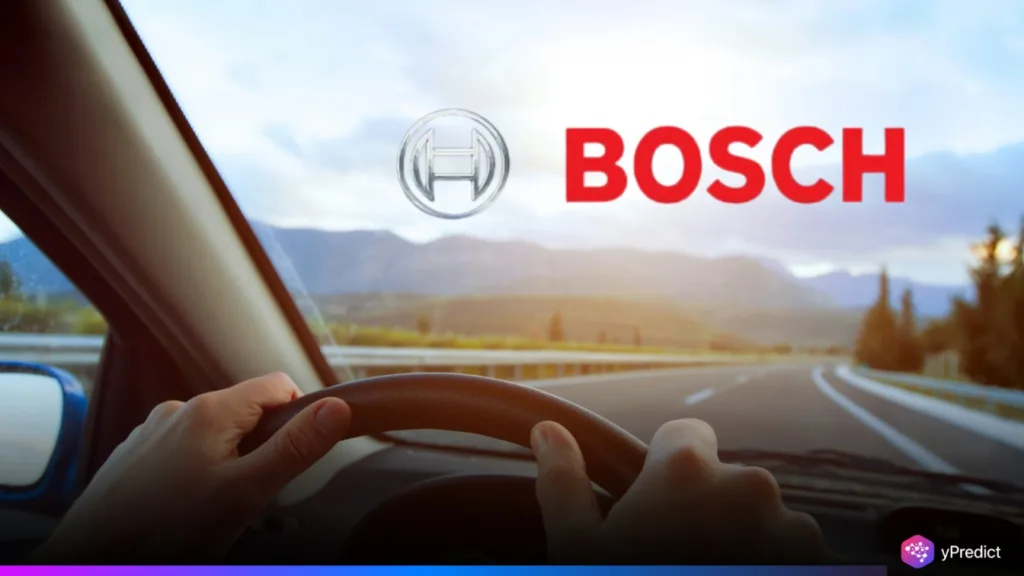
Bosch is placing a substantial bet on AI. The company announced a €2.5 billion investment into AI from 2023 to 2027 to enhance its position in automated driving, smart manufacturing, and generative AI. Bosch is significantly increasing its investment in artificial intelligence which, at its most basic, demonstrates a strategic entrance into a software-driven future while strengthening its already-sector leading innovation with artificial intelligence in Europe. The German engineering behemoth has already filed more AI patents than any other company in Europe and will use the software budget to implement AI in increasing depth into their operations as well as their products. In addition to improving its driver-assist platform, Bosch will introduce AI assistants such as AskBosch AI.
Driving Forward with Automated Intelligence
Automated driving is a top priority in Bosch’s AI roadmap. The company plans to integrate AI into all critical layers of its vehicle technology. Bosch plans to cement an AI capability in real-time decision-making systems for vehicles, providing companies and consumers with systems that can perform key tasks including highway assistance, emergency braking, and managing traffic jams; thus moving technology into the realm of Level 4 autonomy. Bosch engineers are also diligent in incorporating edge AI into vehicles to maximize the performance of AI from inside the vehicle to make intelligent decisions in real-time.
AI is also used for better predictive behavior models and improving the driver experience. It is Bosch’s goal to make automated driving efficient, safe, and available to all by combining AI with vehicle sensor systems. These advancements will strengthen the company’s efforts to develop software-defined vehicles, which rely heavily on modular AI software systems.
AskBosch AI Reshapes Internal Operations
Beyond vehicles, Bosch is using AI to transform its internal workflows. The company’s AskBosch AI assistant now serves more than 30,000 employees globally. The assistant reflects Bosch’s shift toward enterprise-level AI adoption. It uses large language models trained on internal data to streamline employee interactions and cut down on repetitive tasks. This internal transformation is key to Bosch’s broader vision: making AI a day-to-day business utility rather than a back-office experiment.
AskBosch AI is already showing strong returns. It reduces workload bottlenecks, improves employee productivity, and allows teams to focus on creative problem-solving. Bosch plans to extend this tool to more teams and integrate additional AI features, including real-time voice and multilingual support.
Generative AI Leads New Innovation Wave
Bosch has placed generative AI at the center of the company’s innovation strategy. Bosch is developing generative AI models that make use of AI to generate software code, design product concepts, and simulate production environments. The models will support processes ranging from automotive design and simulations to operations in smart factories. Bosch CEO, Stefan Hartung, indicated that generative AI will alter the work styles of engineers, how they collaborate, and what future technologies they will develop.
The goal is not just efficiency but acceleration, shortening product development cycles and improving cross-functional alignment. Bosch intends to use generative AI to reduce errors, automate engineering documentation, and support predictive maintenance in manufacturing systems. Several pilot projects are already underway in Bosch’s innovation centers. These projects involve using generative AI in product design and simulation testing. Bosch also hinted at opening some of its proprietary AI tools to external partners, positioning itself as a leader in industrial AI solutions.
Bosch Urges Smart Regulation in Europe
While Bosch invests heavily in its AI transformation, it is also putting the brakes on overregulating in this area. Hartung warned that “too much oversight or regulation” of AI in Europe might threaten innovation. Hartung challenged policymakers to consider regulations and oversight that are pragmatic and promote innovation, and experimentation, while allowing a framework whereby there are also ethics and transparency.
Bosch sees regulation as protective of users without suffocating development. The company’s position is clear: AI must evolve fast enough to keep Europe competitive. At a time when U.S. and Asian firms are scaling AI rapidly, Bosch wants to ensure Europe doesn’t fall behind due to excessive red tape. The firm’s leadership in AI patents reflects its early commitment, but Hartung believes execution speed is now just as critical as research strength.






